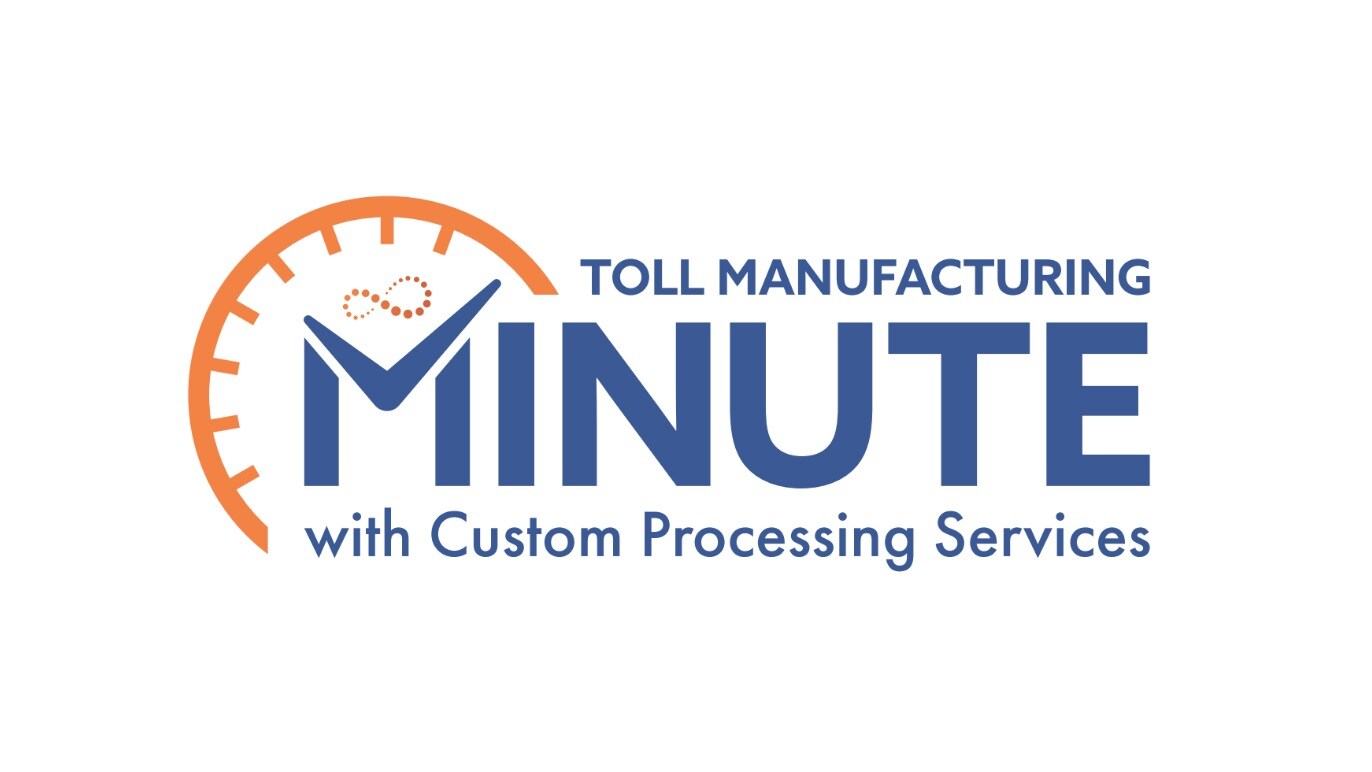Toll Manufacturing Minute with CPS: Jet Milling

Jet milling is a vital process for reducing particle size in a wide variety of industries. Whether it’s polymers, pharmaceuticals, or aerospace materials, achieving fine, consistent particle sizes can make or break product performance. In this blog, we’ll break down how jet milling works, its applications across industries, and why it’s often the preferred choice for companies looking for precision in particle size reduction.
What Is Jet Milling?
Jet milling uses high-velocity air to break down particles into finer sizes. The process involves particles being thrown around inside a mill by powerful air streams. These particles collide with each other, causing them to break down into smaller sizes. At its core, jet milling is a simple but effective way to reduce large particles to finer sizes.
There are two main types of jet mills:
- Spiral Jet Mills – These can be vertical or horizontal, often referred to as "pancake mills."
- Fluid Bed Jet Mills – These feature an internal classifier wheel, providing finer particle size control compared to spiral jet mills.
How Does Jet Milling Work?
Inside a jet mill, high-velocity air is fed through nozzles, propelling the particles at great speed. These particles then collide with each other, causing them to break down. In a spiral jet mill, finer particles move toward the center of the mill, where they exit to the collector. Coarser particles are rejected and stay on the outer side of the mill until they become fine enough to pass through. In fluid bed jet mills, the speed of the internal classifier wheel can be adjusted to control the particle size even more precisely.
Industries That Use Jet Milling
Jet milling is used across several industries, including:
- Polymers
- Ceramics
- Pharmaceuticals
- Cosmetics
- Aerospace and automotive
CPS often works as a middleman, processing materials that may be used downstream in various products. As a toll processor, we don’t always know the final application of the materials we process, but the diversity of industries that rely on jet milling is vast.
Why Particle Size Matters
Changing the particle size of a material can affect many downstream processes. A finer particle size can impact:
- Color
- Flowability
- Bulk density
- How the material interacts with other components
For example, in additive manufacturing or pharmaceuticals, particle size can influence the performance, feel, or even taste of a product. The ability to precisely control particle size is one of the main reasons industries rely on jet milling.
Advantages of Jet Milling
Jet milling offers several key advantages over conventional milling methods:
- No Contamination – Since the particles break down through collisions with each other, there is no risk of contamination from the equipment itself.
- No Heat – The process occurs at ambient temperature, so materials that are sensitive to heat are not affected.
- Fine Particle Control – Jet milling allows for very precise control over particle size, especially when using a fluid bed jet mill with an internal classifier wheel.
Challenges with Jet Milling
One of the primary challenges with jet milling is energy consumption. The driving force behind the process is the air, so a large air compressor is needed to power the mill. For manufacturers who don’t already have the required air compressors, the cost of implementing this process in-house can be high.
Why Partner with a Toll Processor Like CPS?
For many manufacturers, partnering with a toll processor like CPS makes sense. We offer the equipment, expertise, and experience to handle jet milling projects, large or small. Whether you're a company just starting out or one that doesn’t have the resources to bring jet milling in-house, we can handle your materials until you’re ready.
Jet milling is a powerful tool for achieving consistent, fine particle sizes across a wide range of industries. From pharmaceuticals to aerospace, this method offers precise control and contamination-free processing. By partnering with a toll processor like CPS, companies can leverage our expertise to overcome the challenges of jet milling and optimize their production processes.
Ready to learn more about the fundamentals of jet milling? Download our free guide on Jet Milling Fundamentals and discover how precision particle size reduction can benefit your operations.


.png?width=100&height=110&name=CPS-Logo-rgb-no-callout%20(1).png)
